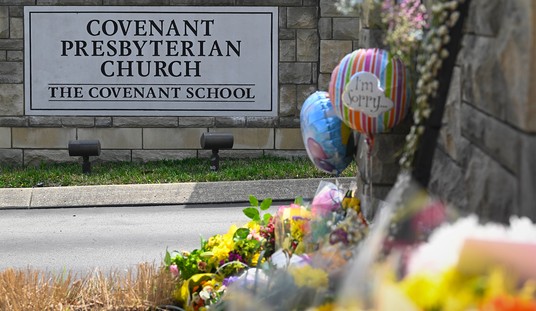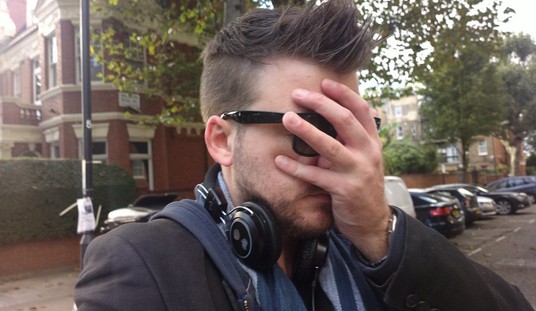If Kansas legislators have their way, the age for legal concealed carry will drop from 21 to 18.
While federal law prohibits 18 to 20 year olds from purchasing a handgun or handgun ammunition, it does not prohibit possession of a handgun, nor the carrying of one.
Under Kansas law, 18 year-olds are already allowed to open carry, but suddenly become felons if they put on a jacket or hoodie that covers their otherwise legally possessed and carried firearm.
Kansas has had legal open carry for much of its history, but finally passed a “shall-issue” concealed carry law in 2006, following it with constitutional carry in 2014, for much the same reasons — someone over 21 open carrying could become a felon should their jacket fall across the weapon.
Kansas House Bill 2059 would create a secondary concealed carry licence (currently for those 21 and up no license is required, but many obtain one in order to be able to carry in other states) for 18 through 20 year-olds.
According to US News & World Report, the bill would create a provisional license for those under 21, issued by the state attorney general, and would require a background check and safety training — more or less what those wishing a permit must undergo now.
Derby, Kansas Repbulican Rep. Blake Carpenter spoke in favor of the bill at a hearing noting many 18 year olds serve in the military and are legal adults who are allowed to vote:
Some of these Kansans are serving in our armed forces where they have bigger weapons than the ones that we are even discussing here today.
The opposition was as predictable as it was tedious.
The Kansas Reflector, a new — but rather reliably liberal — non-profit publication, rather than leading with the specifics of the bill, led with testimony from a grieving mother.
Angela Lee — who is a member of Moms Demand Action — and whose son was murdered by another teenager in 2017 as part of a botched robbery — tried to tie her son’s murder to concealed carry.
“I’ve never in my life felt so lost. Hundreds of children gathered and cried and prayed at our home and again at his gravesite, because we know gun violence affects the entire community. Eighteen-, 19- and 20-year-olds commit gun homicides at a rate nearly four times higher than adults 21 and older.”
Never mind that concealed carry permit holders are not only far less likely to commit crimes, but are more law abiding than the police — who are, naturally, recent media hype aside, more law abiding than the average joe.
Compared to society at large, police officers are very safe on average, and represent a significant deterrent to crime. According to a study in Police Quarterly, police committed an average of 703 crimes (including 113 firearms violations) annually from 2005-2007.[v] With 683,396 full-time law enforcement employees nationwide in 2006, there were about 102 crimes by police per 100,000. That’s a low rate of crime compared to the U.S. population as a whole, at 3,813 crimes per hundred thousand people, which is 37 times higher than the police crime rate.[vi]
However, concealed carry permit holders are even less represented in crime statistics.
Focusing only on firearms violations, among police, firearms violations occur at a rate of 16.5 per 100,000 officers. Among concealed carry permit holders in Florida and Texas, the firearms violation rate is only 2.4 per 100,000 or one-seventh of the rate for police officers. The data are similar in other states.[xii]
Contrary to the facts, however, the opponents also trotted out the “public health crisis” canard.
Rabbi Moti Rieber, executive director of Kansas Interfaith Action, said the proposed legislation would exacerbate the public health crisis of gun violence. He said bills before the 2021 Legislature were part of the gun lobby’s strategy to abandon meaningful restrictions in Kansas.
“We should not subject our young people, or our state, to social experimentation based on a misguided and deadly ideology. Let’s stop this failed experiment before it goes further,” he said.
It’s unclear what “failed experiment” he’s referring to, since violent crime — despite a recent uptick, likely related to lockdowns and protests over the summer — is down nearly 50 percent since its peak in the 1990s.
While correlation is not causation, it is notable that that is the same time-frame in which the wave of concealed carry and gun law liberalization began.
Nor is there any “public health crisis” here, except perhaps in the fever dreams of gun grabbers like Sheila Jackson Lee.
As the National Review noted back in 2017, Second Amendment opponents like Rabbi Rieber trot out misleading statistics to justify the idea there is an “epidemic” (how long before they start saying “pandemic?” So much more frightening, no?) of gun violence, claiming all firearms deaths (98 percent of which are intentional discharges, the vast majority suicide) are the same, regardless of whether it was a negligent discharge, suicide — or murder. And ignoring the fact that, as noted above, crime is largely down, as NR states:
The public-health community never discusses the fact that the violent-crime rate in the U.S. has dropped by half since 1990. The total number of fatal and non-fatal firearms events in the U.S. fell by 69 percent from 1993 to 2011. The firearm-death rate, too, is down over that time, by nearly 40 percent.
While it’s virtually certain our very liberal Democrat Governor Laura Kelly will veto the bill, her mismanagement of the COVID pandemic in the state re-elected — and expanded — veto-proof Republican supermajorities in the general election and the odds are high that — should it make it to her desk and be vetoed — it will be overridden.
And Kansas will continue its trend of expanding the right to keep and bear arms.







Join the conversation as a VIP Member